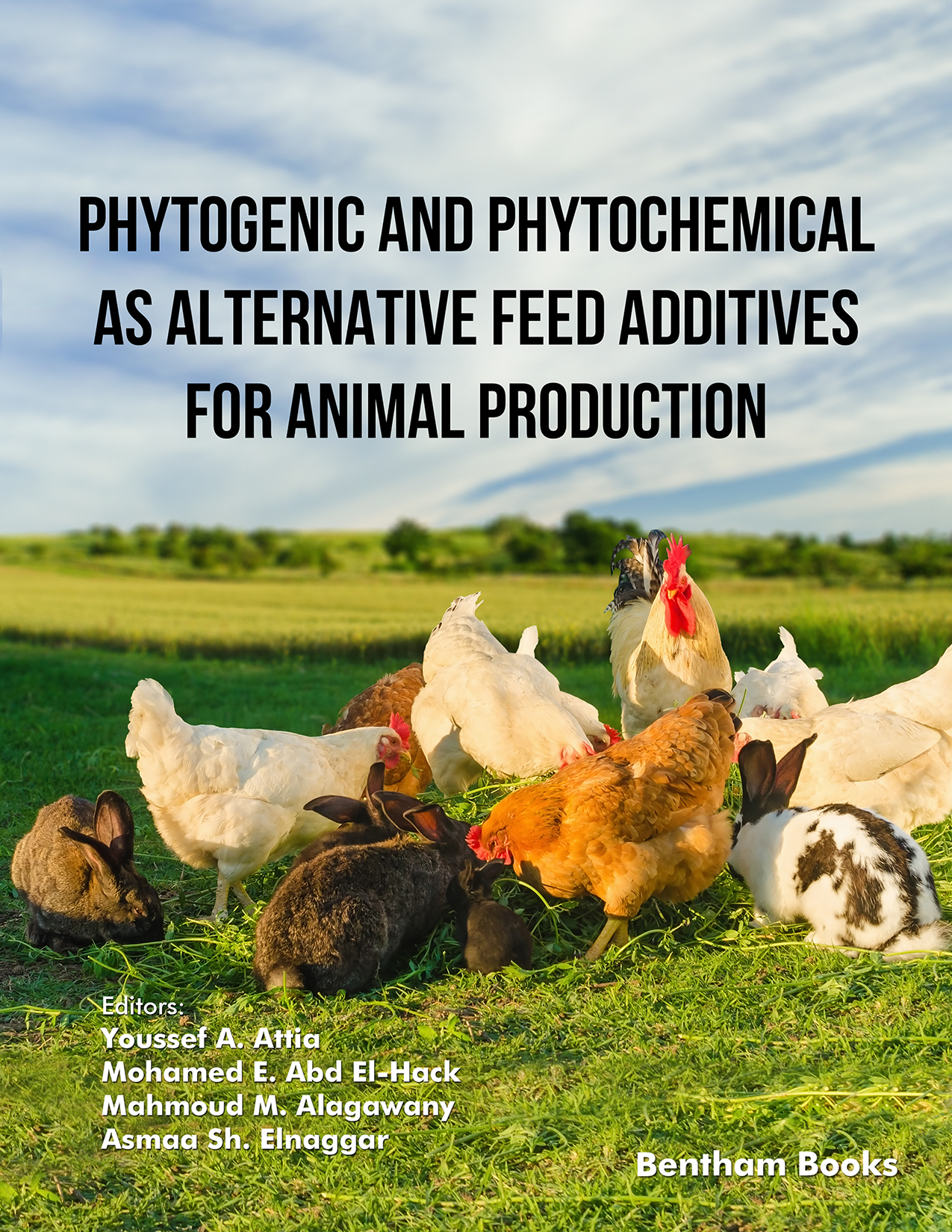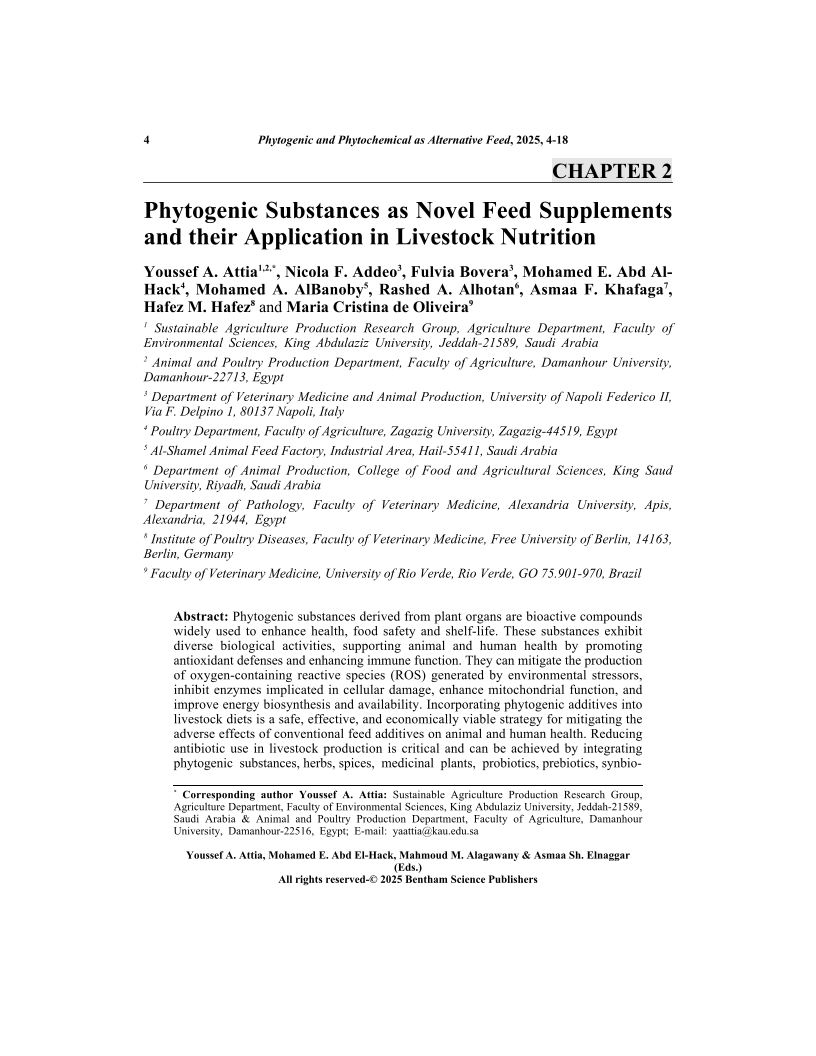Phytogenic Substances as Novel Feed Supplements and their Application in Livestock Nutrition

- Authors: Youssef A. Attia1, Nicola F. Addeo2, Fulvia Bovera3, Mohamed E. Abd AlHack4, Mohamed A. AlBanoby5, Rashed A. Alhotan6, Asmaa F. Khafaga7, Hafez M. Hafez8, Maria Cristina de Oliveira9
-
View Affiliations Hide Affiliations1 Sustainable Agriculture Production Research Group, Agriculture Department, Faculty of Environmental Sciences, King Abdulaziz University, Jeddah 21589, Saudi Arabia 2 Department of Veterinary Medicine and Animal Production, University of Napoli Federico II, Via F. Delpino 1, 80137 Napoli, Italy 3 Department of Veterinary Medicine and Animal Production, University of Napoli Federico II, Via F. Delpino 1, 80137 Napoli, Italy 4 Poultry Department, Faculty of Agriculture, Zagazig University, Zagazig-44519, Egypt 5 Al-Shamel Animal Feed Factory, Industrial Area, Hail-55411, Saudi Arabia 6 Department of Animal Production, College of Food and Agricultural Sciences, King Saud University, Riyadh, Saudi Arabia 7 Department of Pathology, Faculty of Veterinary Medicine, Alexandria University, Apis, Alexandria, 21944, Egypt 8 Institute of Poultry Diseases, Faculty of Veterinary Medicine, Free University of Berlin, 14163, Berlin, Germany 9 Faculty of Veterinary Medicine, University of Rio Verde, Rio Verde, GO 75.901-970, Brazil
- Source: Phytogenic and Phytochemical as Alternative Feed Additives for Animal Production , pp 4-18
- Publication Date: March 2025
- Language: English
Phytogenic Substances as Novel Feed Supplements and their Application in Livestock Nutrition, Page 1 of 1
< Previous page | Next page > /docserver/preview/fulltext/9789815322767/chapter-2-1.gif
Phytogenic substances derived from plant organs are bioactive compounds widely used to enhance health, food safety and shelf-life. These substances exhibit diverse biological activities, supporting animal and human health by promoting antioxidant defenses and enhancing immune function. They can mitigate the production of oxygen-containing reactive species (ROS) generated by environmental stressors, inhibit enzymes implicated in cellular damage, enhance mitochondrial function, and improve energy biosynthesis and availability. Incorporating phytogenic additives into livestock diets is a safe, effective, and economically viable strategy for mitigating the adverse effects of conventional feed additives on animal and human health. Reducing antibiotic use in livestock production is critical and can be achieved by integrating phytogenic substances, herbs, spices, medicinal plants, probiotics, prebiotics, synbiotics, and postbiotics along with implementing robust biosecurity measures. This chapter emphasizes the role of phytogenic products as growth promoters in livestock production, and their potential applications in enhancing food safety and security. The subtherapeutic use of antibacterial drugs has significantly enhanced meat, egg, and milk production over the centuries. However, the use of antimicrobial agents promotes the selection of resistant microbes that can proliferate rapidly and become dominant within microbial populations, potentially compromising the effectiveness of treatment for microbial infections in humans.
-
From This Site
/content/books/9789815322767.chapter-2dcterms_subject,pub_keyword-contentType:Journal -contentType:Figure -contentType:Table -contentType:SupplementaryData105

